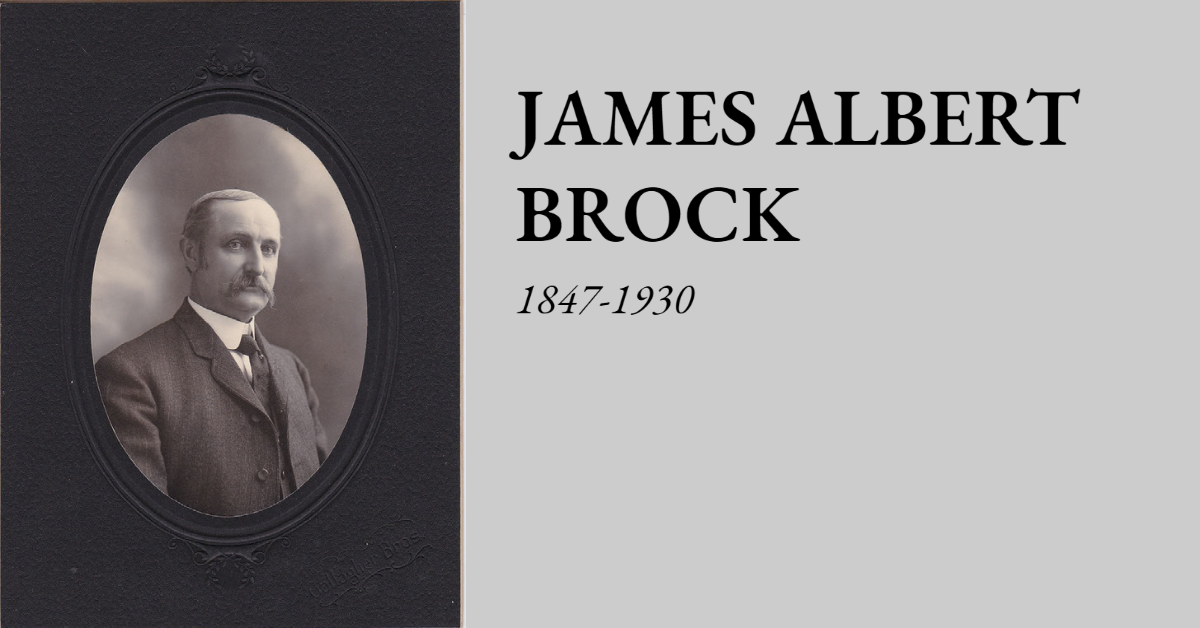Visit
 The Official Web Site of the State of South Carolina
The Official Web Site of the State of South Carolina

J.A. Brock had been dubbed “Anderson’s First Citizen” by the Anderson Independent and his life touted as “unparalleled in Anderson for its usefulness and service.” Born near Honea Path, SC in 1847, young James worked as a clerk for a merchant in Belton before volunteering for service in the Civil War. At only seventeen years of age he served the last eight months of the conflict before the Southern surrender was accepted at Appomattox. He then returned to Anderson County to continue building his business experience, eventually accepting a position as auditor and paymaster for the Greenville & Columbia Railroad in 1869.
Brock began his career in earnest when he was elected cashier of the National Bank of Anderson in 1872. A year later he married his first wife, Theodosia Copeland, with whom he had a son. She passed away after only eighteen months of marriage. He would remarry in 1881 to Eleanor Reed Davis, daughter of Judge J.P. Reed, with whom he would have a daughter. In 1893, he built a Victorian style home on S. McDuffie which came to be known as the Brock-Brown House, one of Anderson’s finest historic properties.
Banking would define much of Brock’s business career, ultimately leading to his becoming president of the Bank of Anderson from 1890 to 1906. Mr. Brock became president of Anderson Cotton Mills in 1889 and served in the same capacity for Brogon (later Appleton) and Toxaway Mills.
Brock was a founder of Anderson, Water, Light, and Power Co. which funded the construction of Anderson’s hydroelectric plants at High Shoals in 1895 and Portman Shoals two years later. The company oversaw the creation of the Anderson Traction Company, Anderson’s first public transit system and Buena Vista Park, the city’s first public recreational park. Other ventures included the Anderson Phosphate and Oil Company, Anderson Real Estate and Investment Company, Standard Warehouse Company, and the Charleston & Western Carolina Railway.
Public services and community building were equal to Mr. Brock’s business efforts. He was instrumental in establishing the Carnegie Library where he served as president and treasurer until a few weeks before his death. He was on the board of trustees for the Anderson County Hospital, served on the board, as a deacon, and as a Sunday school teacher for the First Baptist Church, and was a generous giver to many local charity, civic, and religious organizations.
James A. Brock passed away in 1930 after two weeks of battling a sudden illness and is buried at Silver Brook Cemetery. His contributions to Anderson long outlived him and are essential to its identity as a textile town and the Electric City.